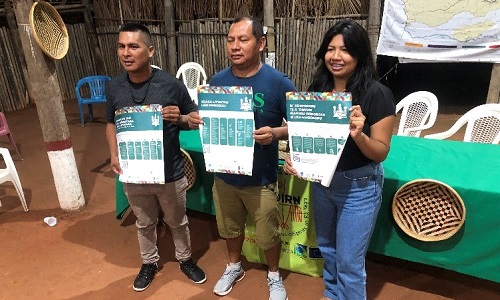The initiative took place under the project "Organized Crime in Prisons and Drug Trafficking from a Regional Perspective", implemented by UNODC.
The aim of the meeting was to promote the exchange of experiences and encourage cooperation between professionals of the penitentiary system of Maranhão/Brazil and Paraguay on issues such as tackling organized crime, classification of prisoners, training for prison officers and prison intelligence, among others.
According to the Secretary of Penitentiary Administration of Maranhão and President of the National Council of Secretaries of State of Justice, Citizenship, Human Rights and Penitentiary Administration (CONSEJ "it is gratifying to receive teams from other states and countries in the state of Maranhão, not only to share what we are doing, but also to exchange experiences. With this, we learn a lot".
During the three-day meeting, in addition to meetings held with the various areas of SEAP-MA, representatives of the Ministry of Justice of Paraguay had the opportunity to visit three prison units of Maranhão.
The exchange visit was held as part of the UNODC project called "Organized Crime in Prisons and Drug Trafficking in a Regional Perspective". This initiative aims to promote the dissemination and adoption of innovative and inter-institutional practices to strengthen prison management and the fight against organized crime, in line with international minimum standards.

The event was attended by leaders of the 23 indigenous peoples, as well as representatives of FOIRN, ISA, CNJ, UNODC, the Court of Justice of State of Amazonas (TJAM) and other organs of the Brazilian judicial system and the executive branch.
According to the Assistant Judge of the Presidency of the Court of Justice of Amazonas (TJAM), Jorsenildo Nascimento, the collaboration between CNJ, TJAM and UN agencies resulted in one of the most important inclusion policies of the Brazilian Judiciary regarding the rights of the indigenous people. "The initiative represents a significant and unique milestone in the process of democratization of access to the judiciary for all Brazilian citizens," he said.
For the Supervisor of the Department of Monitoring and Supervision of the Prison System and the System for Execution of Socio-Educational Measures (DMF) of the CNJ, Counselor Mauro Martins, "this is an unprecedented and pioneering initiative in terms of translating into the languages of the indigenous communities something that is particular to the law.” According to the Coordinator of the DMF, Dr. Luis Lanfredi, "the materials provide visibility to the daily treatment of the justice system and are therefore crucial to the promotion of rights."
The coordinator of UNODC’s Rule of Law Unit noted that, “as a part of UNODC's partnership with the CNJ, UNDP and the Court of Justice of Amazonas, the initiative is a significant advance and falls under the “leaving no one behind” principle of the 2030 Agenda.
Find out more about the Doing Justice Programme here.